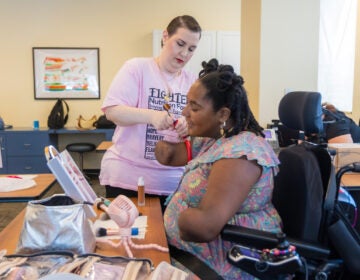Social Media’s ‘Infodemic’
Listen 48:53
Sometimes it feels like we’re being inundated with conflicting messages about the coronavirus. How do we sort what’s true from what isn’t? (Wladimir.B/Big Stock)
Thanks to COVID-19, social media has never been more important — or more dangerous. Information — good or bad — spreads at lightning speed, including viral rumors, conspiracy theories, and “cures” that can kill. In fact, the spread of misinformation on social media has become such a threat to public health that it’s earned its own name: “infodemic.”
On this episode, we track the spread of viral messaging on social media, and its implications for our health. We hear stories about the origins of the “infodemic,” and how researchers are fighting back; why posting on TikTok could be an “ethical gray zone” for doctors; and how researchers are using what we share about ourselves on social media to better understand our mental health.
Also heard on this week’s episode:
- We talk with public health researcher Timothy Caulfield about how and why social media has become a vector for the spread of health-related misinformation — along with what we can do to the fight the ongoing COVID-related “infodemic.”
- Medical ethicist Dominic Sisti explains why social media is valuable for health care providers, but can also be an “ethical gray zone” for Tweet-happy doctors that could ultimately harm the profession. Gastroenterologist Earl Campbell adds his perspective about why doctors can — and should — be active on social media to help combat prevalent misinformation.
- Sometimes it feels like we’re being inundated with conflicting messages about the coronavirus. So how do we sort what’s true from what isn’t? Enter “Nerdy Girls,” an all-female team of researchers and clinicians who’ve made it their mission to spread accurate and up-to-date information on social media. We chat with one of their members, Alison Buttenheim, an associate professor of nursing and health policy at the University of Pennsylvania who studies the behavioral aspects of preventing infectious diseases.
- Researchers are mining our social media posts for information on our moods and well-being. We hear from University of Pennsylvania emergency medicine physician and digital health expert Raina Merchant, and Chris Danforth from the Computational Story Lab team at the University of Vermont.
- Footage of police brutality — most notably, the recent murder of George Floyd — has sparked a nationwide movement for justice. But what is the psychic cost of watching these horrific videos? We talk with adolescent and child psychiatrist Karriem Salaam about the impact these images have on mental health, especially for Black and brown adolescents.
Segments from this episode
WHYY is your source for fact-based, in-depth journalism and information. As a nonprofit organization, we rely on financial support from readers like you. Please give today.







